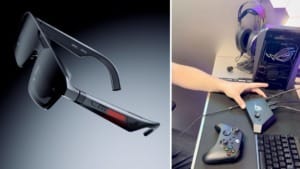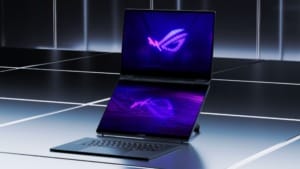Rimac’s Nevera R: A new standard in electric supercars
The Rimac Nevera R, a US$2.5 million electric supercar, sets new speed records with 2,107 horsepower and a 1.74-second 0-60 mph time.

You might think the Rimac Nevera couldn’t get any faster. Still, the Croatian company has just raised the bar by introducing the Nevera R. Already known for producing one of the world’s quickest electric vehicles, Rimac has taken things further with this new model, designed to outpace its predecessor in every way.
Table Of Content
Unbelievable speed and power
The Nevera R can reach 60 mph from a standstill in just 1.74 seconds. This figure shaves off about a tenth of a second from the original Nevera’s time, making it one of the fastest-accelerating production cars in the world. The increase in speed is partly due to the vehicle’s enhanced power output, now boasting an impressive 2,107 horsepower—around 200 more than the previous version.
But speed isn’t the only thing that’s been improved. Rimac has refined the car’s aerodynamics, giving it more downforce and better grip and improving its overall handling. The company claims that these upgrades have also contributed to a faster lap time, with the Nevera R completing a lap of the Nardo Ring—a high-speed track in Italy owned by Porsche—3.8 seconds quicker than its predecessor.
<iframe width="560" height="315" src="https://www.youtube.com/embed/ZvbC_vJzdAk?si=b5YjIilTvaya_rCP" title="YouTube video player" frameborder="0" allow="accelerometer; autoplay; clipboard-write; encrypted-media; gyroscope; picture-in-picture; web-share" referrerpolicy="strict-origin-when-cross-origin" allowfullscreen></iframe>Limited top speed and battery range
Like the regular Nevera, the R model requires “manufacturer oversight” to unlock its maximum top speed of 256 mph. Without this oversight, you’re limited to a top speed of 217 mph, according to a report by MotorTrend. This limitation ensures that the vehicle’s immense power is only fully unleashed under controlled conditions.
Thanks to its 108-kWh battery, the Nevera R is expected to travel about 250 miles on a single charge. However, this figure is based on the European WLTP cycle and has yet to be officially certified. The car’s battery range might be sufficient for daily driving, but it’s clear that the Nevera R is built more for thrilling, high-speed experiences than for long road trips.
Exclusivity and price
Rimac plans to produce only 40 units of this exclusive model, each costing US$2.5 million. This limited production run ensures that the Nevera R will remain a rare sight on the road.
Those who find the Nevera R out of reach might have a chance to experience Rimac’s innovation in another way. The company, which holds a majority stake in Bugatti, is also working on a fleet of Croatian robotaxis that could soon hit the streets. While these autonomous vehicles won’t match the Nevera R regarding speed or power, they will represent Rimac’s continued push for technological advancement in the automotive world.
The Nevera R solidifies Rimac’s place in the supercar industry and pushes the boundaries of what electric vehicles can achieve. With this new model, Rimac has again demonstrated its commitment to combining extreme performance with cutting-edge technology.













